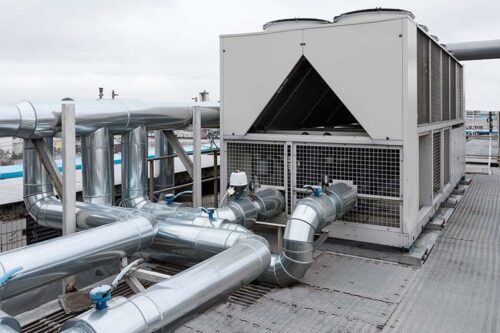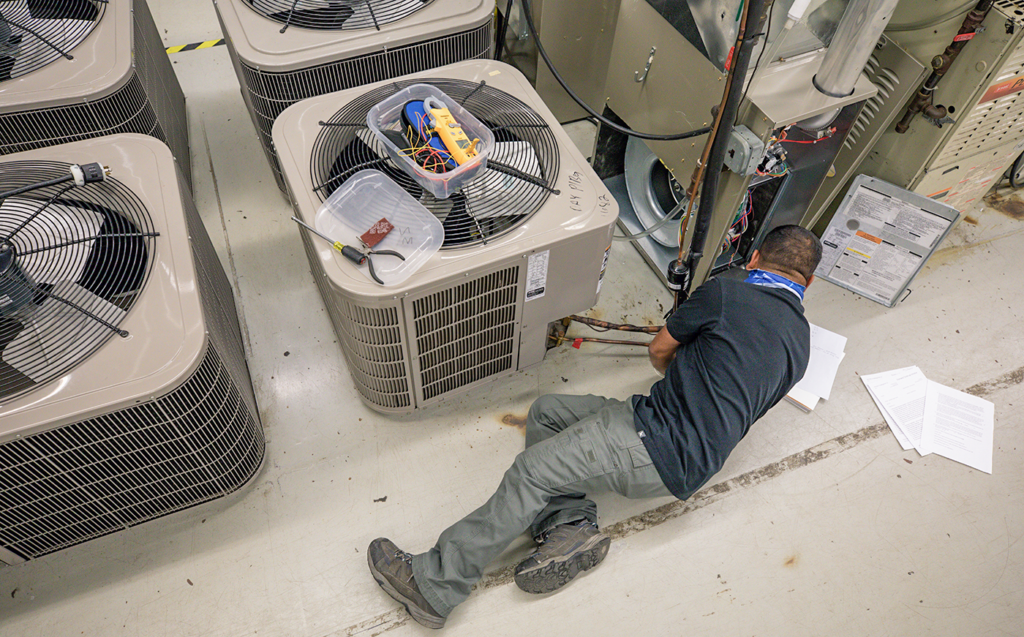Your Overview to Selecting the Right HVAC System for Your Needs
Picking a proper a/c system is an essential decision that can significantly affect comfort and energy effectiveness in your house. Different factors need to be evaluated, including the size of your home, local environment conditions, and particular home heating or cooling requirements. In addition, recognizing the different sorts of systems readily available and their power rankings can aid guide your choice. By reviewing these aspects meticulously, you can prevent usual challenges. What crucial considerations should you prioritize to guarantee your financial investment fulfills both immediate and long-term demands?
Understanding Heating And Cooling System Kind
When selecting an a/c system, it is important to understand the different types readily available to satisfy your specific needs. The main categories of a/c systems include main air conditioning systems, ductless mini-split systems, warm pumps, and heating system systems.
Central air conditioning systems are made to cool down multiple spaces making use of ductwork to distribute conditioned air. They are perfect for bigger homes requiring consistent temperature control. Ductless mini-split systems, on the other hand, provide flexibility and performance, as they enable zoning capacities, enabling individual space temperature level regulation without the need for ductwork.
Heatpump operate by moving warm instead of generating it, making them an energy-efficient alternative for both heating & cooling. They are specifically reliable in moderate environments. Conversely, furnace systems utilize combustion to generate heat, making use of either gas, power, or oil. They are favored in chillier regions where home heating needs are considerable.
Each system has distinct benefits and considerations, consisting of setup requirements, upkeep, and total prices. Understanding these types will help homeowners make educated choices based upon their certain requirements, environment, and budget plan restraints, eventually guaranteeing optimum convenience and performance.
Assessing Energy Efficiency
Energy effectiveness is an essential element in the selection of an A/c system, as it directly influences both utility prices and environmental sustainability. The Seasonal Power Performance Proportion (SEER) and the Home Heating Seasonal Performance Aspect (HSPF) are crucial indicators for air conditioning systems, representing their effectiveness over a normal cooling and home heating period, respectively.
Furthermore, look for systems that have actually made the power celebrity label. This certification represents that the tools fulfills rigorous energy performance standards established by the U.S. Environmental Defense Firm. Take into consideration the system's variable-speed innovation, which permits for extra reliable operation by changing the outcome to match demand, even more boosting power financial savings.
Additionally, correct insulation and duct sealing can dramatically affect the system's general performance. In summary, choosing an energy-efficient HVAC system not only reduces your power costs yet also adds to a more lasting environment, making it an important factor to consider in your investing in procedure.
Assessing System Dimension
Choosing the ideal dimension for a cooling and heating system is important to ensuring ideal efficiency and performance. An undersized system might battle to maintain desired temperature levels, causing increased deterioration, higher energy intake, and reduced comfort. Alternatively, a large system can cause fast biking, which not just triggers inadequacies but also affects humidity control and air top quality.
To assess the excellent sizing, it is important to perform a load estimation, which considers factors such as the square video footage of the space, insulation degrees, home window dimensions, and local climate problems - furnace repair. This estimation assists identify the British Thermal Devices (BTU) required for cooling and heating. Additionally, it is essential to represent details needs, such as the variety of owners and the visibility of heat-generating devices

Installation Expenses and Budget Plan
A thorough understanding of installment prices is vital for companies and house owners considering a new heating and cooling system. The complete cost of setup can differ widely based upon a number of elements, consisting of the sort of system, the complexity of setup, and the area of the residential or commercial property. Typically, installation costs can range from $3,000 to $10,000, relying on the system's size and performance.
When budgeting for a HVAC system, it is vital to take into consideration not only the initial installment costs but also any type of extra expenses that may emerge, such as ductwork modifications, electrical upgrades, or licenses. Furthermore, it is suggested to obtain multiple quotes from qualified a/c service providers to ensure affordable pricing.
Homeowners ought to likewise factor in the potential lasting savings associated with energy-efficient systems. internet While the ahead of time prices might be higher, energy-efficient models can bring about substantial savings on utility costs gradually.

Upkeep and Long Life Considerations

Correct upkeep includes regular examinations, filter substitutes, and cleansing of coils and ducts (hvac). Overlooking these jobs can lead to reduced effectiveness, enhanced power costs, and premature system failure. Property owners should additionally consider the schedule of service contracts, which usually give scheduled maintenance this post and concern service, making sure that the system stays in peak problem
Durability varies by system type; for instance, well-maintained central air conditioning devices can last 15 to twenty years, while heat pumps may have a life-span of 10 to 15 years. Choosing a system with a strong reputation for integrity, in addition to purchasing routine maintenance, can considerably improve the system's toughness. Furthermore, selecting higher-efficiency designs might bring about long-lasting cost savings on energy costs, balancing the initial financial investment gradually.
Verdict
To conclude, choosing a suitable heating and cooling system demands careful factor to consider of different factors, including system types, power performance, and size. Examining installation costs and long-lasting maintenance demands is vital for ensuring ideal efficiency and cost-effectiveness. Engaging with HVAC professionals can provide useful understandings and tailored suggestions that line up with certain home heating and cooling down requirements. Ultimately, an educated choice will boost comfort and efficiency in household atmospheres while taking full advantage of energy savings.
Selecting a proper HVAC system is an important decision that can considerably impact comfort and power effectiveness in website link your home.Energy effectiveness is a critical aspect in the option of an A/c system, as it straight impacts both utility costs and environmental sustainability. The Seasonal Power Effectiveness Ratio (SEER) and the Home Heating Seasonal Performance Element (HSPF) are vital indicators for air conditioning systems, representing their efficiency over a typical air conditioning and heating season, respectively. Selecting a system with a strong track record for dependability, along with investing in routine upkeep, can considerably improve the system's toughness.In conclusion, picking a proper A/c system requires mindful consideration of different variables, consisting of system types, energy efficiency, and size.